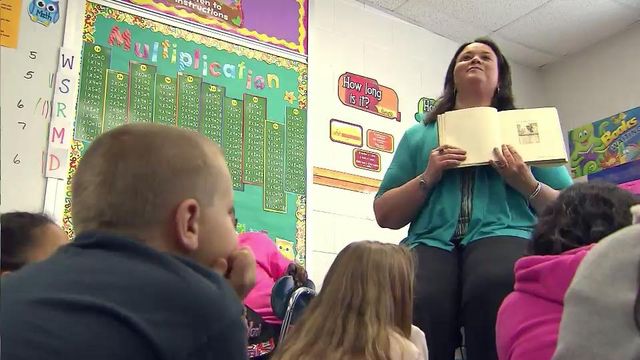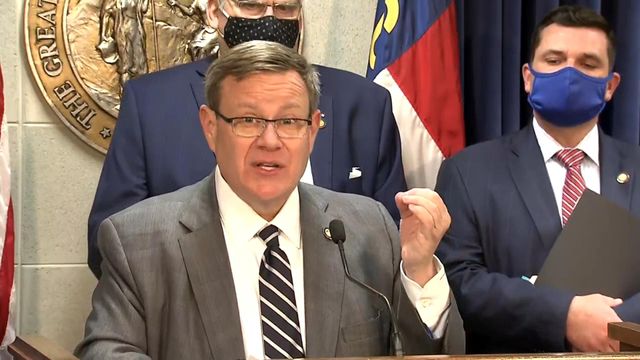Lawmakers propose 6 weeks of summer school to help NC students make up for learning lost during pandemic
State lawmakers have proposed a six-week summer school session to help students make up some of the ground lost in remote learning over the past year during the coronavirus pandemic.
Posted — Updated"Even if you have the fastest computer, the best internet, whatever else, it's really difficult for these children to learn and not be in class," said Moore, R-Cleveland. "We know these kids are falling behind. We know this is something that, if we don't do it right, North Carolina will pay for it for decades."
House Bill 82 calls for summer school classes to be held for at least five hours a day, five days a week, plus a lunch period and time for physical activity.
"We've got to push these kids ahead and get them caught up," said Rep. Jeff Zenger, R-Forsyth, another bill sponsor. "This is a year we've defined a lot of things as essential. There's nothing more essential than our kids and their education and their future."
Students in kindergarten through third grade would focus on reading and math, and Rep. John Torbett, R-Gaston, said the summer reading camps held in recent years to get students up to grade level by the end of third grade would be incorporated into the classes. Third-graders also would have a science class each day.
Students in grades four through eight would focus on reading, math and science, while those in high school would focus on any subjects needed for graduation.
Enrichment classes in art, music or sports also would be provided for all students, said Torbett, who chairs the House K-12 Education committee and is also a bill sponsor.
"We cannot discount the importance of the arts or music or sports in the total enrichment of our children," he said.
Rep. Graig Meyer, D-Orange, called the bill "very prescriptive."
"I’m not sure one-size-fits-all is the approach we need for the large variety of learning needs we’re facing," Meyer said.
Katherine Joyce, executive director of the North Carolina Association of School Administrators, agreed that districts need flexibility to address their individual needs, such as different schedule options to appeal to more families and teachers and including charter schools in all requirements.
"We at NCASA and our school leaders definitely want to help make this proposal work for schools, families and students," Joyce said in a statement.
Teachers who want to teach the summer classes would sign a separate six-week contract with enhanced pay, Moore said.
But Joyce noted that the separate contract doesn't allow teachers to accrue retirement credit or leave time, which might discourage some teachers from signing up.
Schools would have to abide by all safety guidelines in place during the summer, Moore said, adding that he expects most teachers would have been vaccinated by then and the pandemic to be waning.
The program would target students most at risk of falling behind – those with poor test results, failing grades or in danger of not graduating – but would be open to anyone.
"Most parents are going to want to take advantage of every resource they can to know that [their] children are getting caught up," Moore said.
• Credits
Copyright 2024 by Capitol Broadcasting Company. All rights reserved. This material may not be published, broadcast, rewritten or redistributed.






